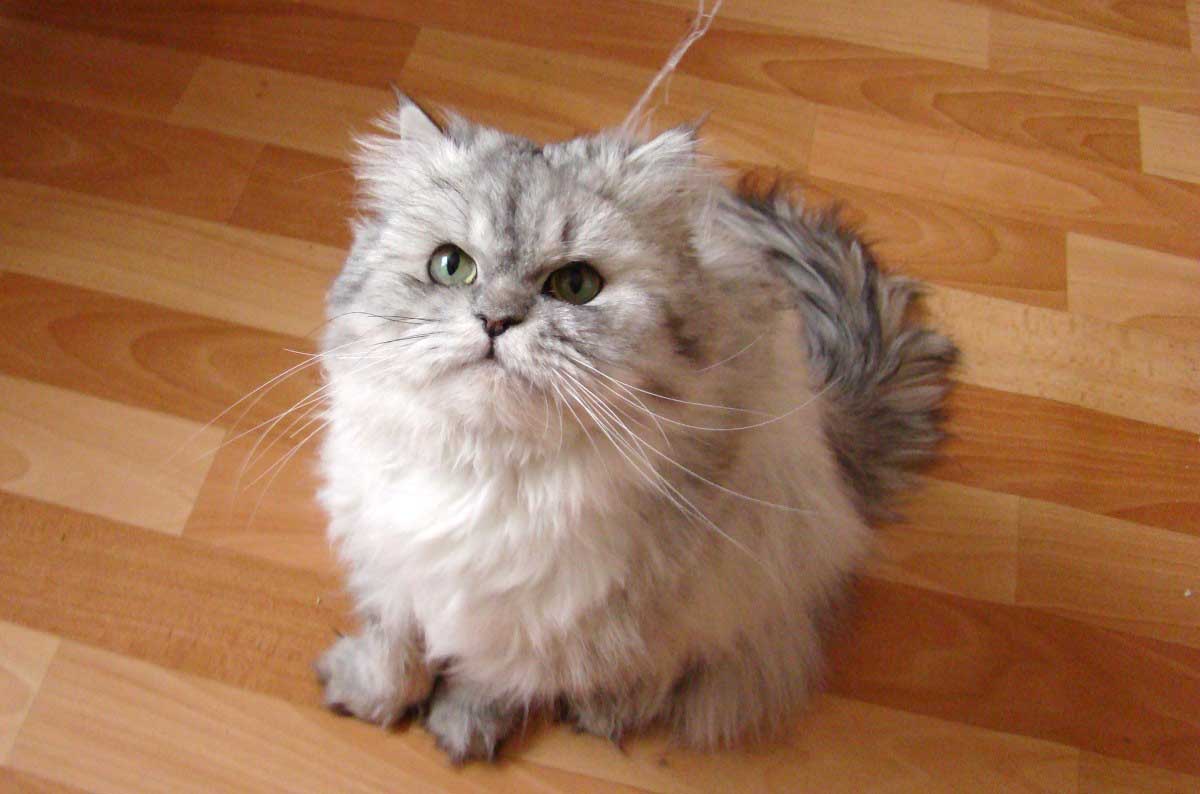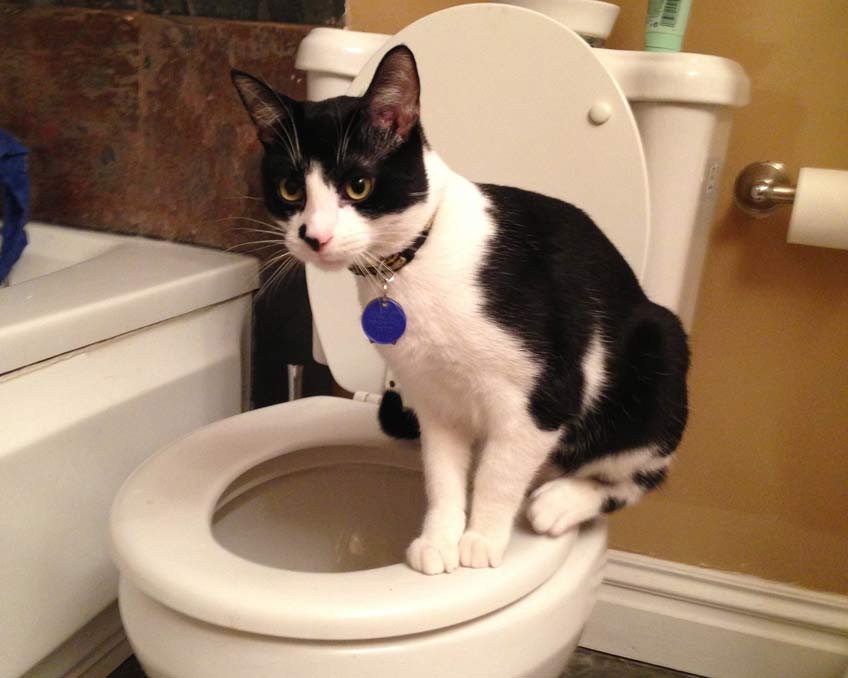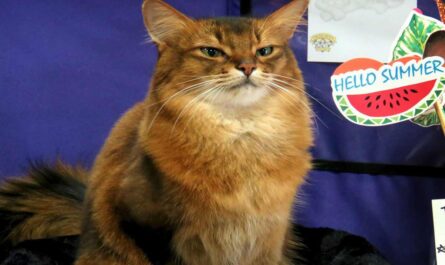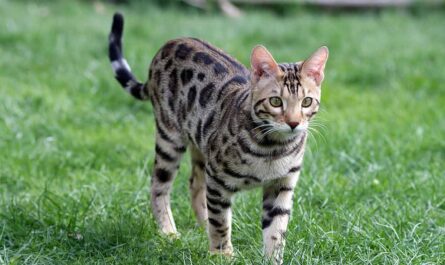Are you prepared to embark on a captivating journey into the realm of one of the most alluring feline breeds? Come with me as we delve into the captivating universe of the Chinchilla Cat breed, unveiling the mysteries surrounding these enchanting creatures. Together, we will unearth their unique attributes, delve into their history, and unravel the care essentials that render Chinchilla Cats cherished additions to any feline-loving family.
Chinchilla cats are an extraordinary and mesmerizing breed that has stolen the hearts of cat enthusiasts all across the globe. These felines, with their resplendent silver fur and bewitching green eyes, are nothing short of a visual marvel. In this article, we embark on an expedition to uncover the essential insights and intriguing facts about Chinchilla cats. Our journey will shed light on their origins, distinctive personality traits, grooming intricacies, and vital health considerations.
Origin
Let’s initiate our exploration by tracing the origin of the Chinchilla Cat breed. Originating from Persia, modern-day Iran, Chinchilla Cats are renowned for their opulent silver or white coats, reminiscent of precious silver fur. These majestic felines were officially recognized as a distinct breed during the late 19th century. Their appearance, both striking and gentle, quickly captivated cat enthusiasts worldwide.
History
The Chinchilla cat stands as one of the oldest feline breeds, the result of meticulous efforts to breed a Persian cat with a pale, luxurious coat. The lineage of this breed was carefully curated over several years through selective breeding. Historical accounts suggest that this breed may have descended from a female cat named Chinnie in 1882. The nomenclature of the breed itself is a source of some confusion, as it remains unclear whether the name originated from Chinnie or was inspired by the resemblance between the cat’s appearance and that of the Chinchilla rodent. Notably, Chinnie emerged as the offspring of two award-winning cats, likely Silver or spotted tabbies. Dog accessories on Amazon
Chinnie was initially bred by Mrs. Hurt of Sandal Mayner in the United Kingdom. Subsequently, Mrs. Vallance acquired Chinnie and facilitated a union with Fluffy, a pure silver feline adorned with tabby markings. This union yielded offspring that consistently garnered accolades, leading to the eventual emergence of the legendary Ch Silver Lambkin. This exceptional feline is often regarded as the first Chinchilla cat. The lineage’s development was further accelerated under the watchful eye of Mrs. Shearman, whose Champion Perso produced the illustrious Ch Silver Lambkin, solidifying the breed’s status at the Crystal Palace show.
Additionally, it’s imperative to maintain the Chinchilla’s litter tray in impeccable condition, as these felines are rather particular and may refuse to use it if soiled. As a fascinating footnote, a Chinchilla cat made its cinematic debut in the 1971 James Bond film “Diamonds Are Forever,” playing the role of Bond’s nemesis, Blofeld’s, beloved pet. Moreover, it took the collaboration of five distinct Chinchilla cats to bring one feline character to life in the film “Stuart Little.” Cat accessories on Amazon
Appearance
Chinchillas belong to the enchanting realm of Persian cats, a subcategory aptly characterized as “silver.” Their intrinsic charm lies in a coat adorned with pristine white underfur. Yet, it’s the artful interplay of ebony-tipped fur gracing the back, legs, flanks, head, ears, and tail that endows them with a shimmering allure, an exquisite balance of light and dark. This distribution of tipping is crucial, imparting their distinctive sparkling visage. Bird accessories on Amazon
While a touch of shading from the tipping may grace their countenance and limbs, certain sacred realms must remain unsullied by this dark embrace. The chin, ear tufts, stomach, and chest must retain their sacred purity, cloaked in the unblemished whiteness of snow. The presence of cream or brown undertones or even the faintest hint of tabby markings is regarded as a transgression against their pristine beauty. Furthermore, the hocks should stand as unmarred beacons of purity, free from any blemishes.
Unveiling the Charms of Chinchilla Persian Cats
If you’re a feline enthusiast captivated by the enchanting allure of Chinchilla cats, you’ve come to the right place! This all-encompassing guide is your gateway to understanding this extraordinary breed, no fancy titles or credentials are required. Let’s embark on this journey of discovery!
Physical Elegance: Chinchilla cats are easily distinguished by their stunning silver-white fur, an embodiment of luxury and majesty. Their coats, flowing and silky, conjure an almost otherworldly aura. The crowning touch is the black tipping on their fur, bestowing depth and contrast to their overall appearance. With medium-sized bodies, round faces, expressive large eyes, and petite ears, they radiate an enchanting charm. To keep their coat’s resplendence intact, regular grooming is a must.
Origin Tale: The Chinchilla cat breed has its roots in late 19th-century Britain. It emerged from the union of Persian cats and silver-tipped British Shorthairs, resulting in a mesmerizing silver-white coat adorned with black tipping. This breed quickly gained favor for its opulent looks and gentle disposition.
Temperament: Chinchilla cats are celebrated for their gentle and affectionate nature. They are usually poised and tranquil, thriving in serene environments. Their sociable demeanor makes them ideal companions for families with children or other pets. While they revel in human company and affection, they also value their solitary moments and exude an independent spirit. These felines are not known for excessive vocalization and generally maintain well-mannered conduct.
Ancestral Chronicles
The historical annals of Chinchilla cats hearken back to the distinguished Persian breed. Their inception unfurled during the early 20th century, a result of meticulous selective breeding endeavors, all with a single goal – to attain the iconic silver coat. Remarkably, their appellation is a homage to the remarkable resemblance their fur bears to chinchillas, those petite rodents celebrated for their luxuriously soft and dense fur.
The Art of Grooming
The pièce de résistance of Chinchilla cats undoubtedly lies in their resplendent silver coat. However, maintaining this ethereal beauty demands assiduous grooming. Their fur, delicate as gossamer, is prone to troublesome matting. Thus, a daily ritual involving a soft-bristle brush or a specialized comb designed for long-haired felines is imperative. Special vigilance should be directed towards the recesses behind their ears and the delicate region beneath their armpits, where the tenacious tangles often choose to weave their intricate tapestries.
A Pictorial Tale
To paint a vivid portrait of the Chinchilla cat’s enchantment, envisage this scene: You are nestled upon a snug couch, the tranquil presence of a captivating Chinchilla cat by your side. It utters soft, contented purrs as you tenderly caress its silken fur. In this cherished moment, you can’t help but marvel at the unparalleled beauty and serene aura emanating from this extraordinary feline companion.
Personality
Chinchilla cats are lauded for their serene and affectionate disposition. They tend to be social beings, delighting in the warm company of their human companions. These felines typically exude an air of composure and tranquility, rendering them ideal additions to households graced by the presence of children or other pets. Welcoming a Chinchilla cat into your abode is akin to inviting a serene spirit, capable of instilling harmony within your living spaces.
Chinchillas possess a remarkably tranquil and gentle nature, rendering them excellent companions for a diverse range of individuals. However, it’s essential to note that they may not fare well in the company of small children. These felines are renowned for their propensity to form profound bonds with their human companions, and they become exceedingly devoted to them.
Chinchillas are renowned for their placid disposition, serenely traversing life’s tapestry with a quiet demeanor. They find contentment in the art of repose, gracing their abode with an aura of enchantment. These cats, however, are not devoid of affection; they bask in the gentle caress of attention and often form unbreakable bonds with their human companions. See why thousands of cats love BoxCat
Their compatibility extends graciously to both apartments and houses, content to while away the hours indoors, enveloped in the embrace of a tranquil sanctuary. Basking in the splendor of their physical grace, Chinchilla cats are particularly fond of lounging about the house. They relish the warmth of companionship, so if you anticipate prolonged absences during the day, it’s advisable to consider getting them a feline friend. The Chinchilla cat thrives in an indoor environment characterized by routine and the tranquility of a harmonious family home.
Traits
Let’s embark on an exploration of the defining attributes that distinguish the Chinchilla Cat.
The Opulent Fur: Chinchilla Cats are bedecked in a lavish, velvety coat that beckons the hand to caress its softness. When touched, it yields to gentle pressure, creating an irresistible tactile experience. This coat, akin to a shimmering tapestry, displays a resplendent silver or white hue. This fur is bestowed with the descriptor ‘tipped,’ signifying that each individual hair begins in pristine white at its base and gradually transforms into a lustrous silver hue as it reaches its tip. This unique feature imparts upon them an ethereal luminosity that captures the beholder’s fascination.
Tender and Demonstrative Nature: Celebrated for their mild and affectionate disposition, Chinchilla Cats earn the endearing moniker of ‘gentle giants.’ They thrive on human companionship, basking in the proximity of their cherished human counterparts. Their affectionate demeanor makes them ideal companions for both solitary individuals and families yearning for a furry confidant to share their lives.
Mesmerizing Emerald Gaze: Among their many enchanting attributes, the Chinchilla Cat’s large and expressive green eyes rank prominently. These eyes, in perfect harmony with their glistening coats, endow them with an aura of sophistication and grace that is truly captivating.
Characteristics
Now that we’ve delved into the fascinating traits that define them, let’s embark on the journey of understanding how to provide proper care for a Chinchilla Cat.
Grooming Ritual: Given their resplendent, flowing fur, Chinchilla Cats demand regular grooming to preserve the immaculate condition of their coats. Daily brushing emerges as the cornerstone of their grooming regimen, acting as a bulwark against the perils of matting while ensuring their fur remains agleam. Additionally, periodic baths, carried out with tenderness, serve the dual purpose of maintaining cleanliness and overall well-being.
Play and Physical Activity: Despite their placid demeanor, Chinchilla Cats harbor a penchant for physical engagement and regular exercise. Ensuring their contentment and physical fitness necessitates stimulating playtime replete with interactive toys designed to emulate the thrill of the hunt. These sessions serve not only as a wellspring of mental stimulation but also as a conduit for physical activity that is vital for their well-being.
Sustenance and Nutritional Care: Analogous to their feline counterparts, Chinchilla Cats thrive when their diet comprises high-quality cat food. Collaboration with a trusted veterinarian is paramount to ascertain the correct portion sizes and feeding frequency, thus ensuring their optimal physical condition.

Common Chinchilla Cat Diseases & Conditions
Just like their feline counterparts, Chinchilla cats are not impervious to specific health concerns. Among these, hereditary conditions like polycystic kidney disease (PKD) and hypertrophic cardiomyopathy (HCM) loom as potential adversaries. Safeguarding the well-being of your Chinchilla cat hinges on a trio of protective measures: routine veterinary check-ups, a nourishing diet, and an environment enriched with mental and physical stimuli.
Symptoms, diagnosis, and treatment:
Polycystic kidney disease (PKD): This is an inherited condition that may manifest at an early age. PKD results in the formation of fluid-filled cysts in the kidneys, obstructing their normal functioning. Left unattended, it can culminate in chronic renal failure. Signs to watch for include diminished appetite, recurrent vomiting, excessive thirst, frequent urination, lethargy, and despondency. The most reliable diagnostic method is ultrasound, and treatment options may encompass dietary adjustments, medication, and hormone therapy. Pet accessories on Amazon
Furballs, contrary to their name, don’t resemble spherical objects but rather cigar-shaped clusters that a cat might regurgitate. These occur when a cat ingests fur that has accumulated in the stomach during grooming. These masses may lodge in the upper intestine or stomach, potentially causing an obstruction. Excessive furball formation can be triggered by factors such as heightened stress, skin irritations, or obesity. Maintaining a nutritious diet can help minimize the occurrence of furball episodes.
Blocked tear ducts: Situated at the corner of a cat’s eye, the tear duct can become obstructed, leading to excessive tearing and tears running down the face or cheeks. This blockage may result in fur staining beneath the eye. Various factors can cause blocked tear ducts, including eye inflammation, injuries from catfights, or misaligned eyelashes. In some instances, surgical intervention may be necessary to rectify this issue.
Ringworm, also known as dermatophytosis, is one of the most prevalent fungal skin infections in cats. It’s caused by a parasitic organism that infiltrates the outer layers of the skin, including fur and claws. Long-haired cats are more susceptible to ringworm than their short-haired counterparts. Importantly, ringworm is zoonotic, meaning it can be transmitted between cats and humans. This condition presents as circular patches of scaly, rough skin outlined in red, often accompanied by areas of hair loss. See why thousands of cats love BoxCat
Care and Maintenance
The elegance of their long, pristine coats belies a reality—they are prodigious shedders, particularly during the winter months when their seasonal cloak descends. While daily brushing can temper the relentless tide of discarded fur, a vestige of it will inevitably find its place upon clothes and furnishings. Cat accessories on Amazon
In the cooler months, when their coat transitions into a more modest attire, the grooming ritual requires less frequent attention, offering a respite. A mere few minutes of gentle care each day can suffice. This chore can be seamlessly woven into your daily routine, perhaps during the moments spent watching television. As an alternative, for those who seek the allure of Chinchilla beauty with the ease of minimal grooming, the exotic feline realm beckons, offering the “lazy man’s Persian” with their low-maintenance allure—an ideal choice for the bustling individual who yearns for feline elegance without the grooming demands.
Nurturing a Chinchilla cat is a fulfilling commitment. Here are essential considerations:
Health: Like all cat breeds, Chinchilla cats may be predisposed to certain health concerns. Regular veterinary check-ups are imperative to ensure their well-being. A balanced diet and a stimulating environment contribute to their health and happiness.
Living Environment: Chinchillas thrive in tranquil settings. They appreciate having their personal space, cozy hideaways, and scratching posts for both mental and physical stimulation.
Grooming Routine: Due to their lustrous, lengthy fur, Chinchilla cats require routine grooming. Daily brushing with a soft-bristle brush or a specialized comb for long-haired cats is essential to prevent matting. Special attention should be paid to areas prone to tangles.
An Exquisite Example: To grasp the enchantment of the Chinchilla cat breed, conjure an image of a regal feline, resplendent in a silver-white coat reminiscent of freshly fallen snow. Its large, expressive eyes exude serenity as it reclines on plush cushions, purring contentedly under the gentle caresses of its adoring owner. It epitomizes grace and elegance.
Exploring the Pros and Cons of Owning a Chinchilla Persian Cat
Chinchilla Persian cats are an exceptional and captivating breed cherished by many cat enthusiasts. They are celebrated for their stunning silver coats, captivating green eyes, and gentle demeanor. In this article, we will delve into the world of Chinchilla Persians, examining their advantages and disadvantages as pets.
Advantages of Owning a Chinchilla Persian Cat
Affectionate Companions: Chinchilla Persians are known for their loving and affectionate demeanor. They revel in the company of their human companions and are often described as lap cats. Imagine having a furry friend who delights in nothing more than curling up in your lap!
Unique Beauty: Chinchilla Persians are genuinely eye-catching with their shimmering silver fur. Their coats exude a sense of opulence, resembling regal silver statues come to life. Imagine having a cat that appears as a living work of art!
Gentle and Serene: Chinchilla Persians are celebrated for their tranquil and relaxed nature. They typically thrive in a calm and peaceful environment. This makes them ideal companions for those seeking a serene and peaceful pet. These cats can infuse your home with a sense of tranquility!
Low Maintenance: In comparison to some other cat breeds, Chinchilla Persians require less grooming. Their short fur is less prone to matting, and they do not shed excessively. Regular brushing and occasional baths are usually sufficient to keep their coat in splendid condition. No need to spend hours dealing with cat hair!
Challenges of Chinchilla Persian Cat Ownership
Health Considerations: Just like any other feline breed, Chinchilla Persians may confront certain health issues. These may include ocular complications, respiratory ailments, and dental troubles. Regular visits to the veterinarian and a nutritious diet are paramount for their overall well-being. Ensuring that your Chinchilla Persian receives proper care and attention is fundamental to their happiness and health.
Allergic Potential: Allergies are another facet to contemplate. Some individuals might find themselves sensitive to cat dander or saliva, and Chinchilla Persians are no exception. If you or a family member have allergies, it’s wise to acquaint yourself with this breed before committing to adoption. You could consider spending time with a friend who owns a Chinchilla Persian or visiting a cat cafe to gauge any potential allergic reactions.
Financial Considerations: Chinchilla Persians are classified as a premium breed, which means they can come with a heftier price tag compared to other cat breeds. Moreover, they may necessitate specialized food, grooming supplies, and occasional veterinary appointments. Evaluating your budget and financial capacity is prudent before welcoming a Chinchilla Persian into your home.
Grooming Demands: While Chinchilla Persians have grooming needs that are relatively modest in comparison to their long-haired counterparts, they still demand regular care to keep their coat in impeccable condition. Neglecting grooming can result in matting and skin issues. Consistent grooming is pivotal to uphold the stunning appearance of your Chinchilla Persian.
As an aficionado of felines, I’ve always been captivated by the diverse array of cat breeds and their distinct attributes. One particular breed that has consistently piqued my interest is the Chinchilla cat. These cats have garnered acclaim for their resplendent silver coats and captivating emerald eyes. Their opulent fur distinguishes them in the world of cat breeds, adding to their innate allure.
To gain a profound understanding of the Chinchilla cat breed, an all-encompassing exploration is essential. This exploration spans their historical origins, physical traits, temperament, and health considerations. In our quest for knowledge, cross-referencing reliable sources and staying informed is essential to provide the tailored care these magnificent felines require.
During the investigation of the Chinchilla cat breed, it remains imperative to validate the information encountered. It’s prudent to consult reputable sources such as breed associations, feline clubs, and seasoned breeders. This approach ensures the veracity of the information acquired, facilitating optimal care for these splendid creatures.
Final thought
Comprehending the Chinchilla cat breed necessitates a thorough examination of its history, physical attributes, temperament, and health concerns. Staying well-informed and seeking expert guidance ensures that we offer the best care for these magnificent felines. Always verify the information you encounter and consult professionals to ascertain its accuracy.
It is of paramount importance to acknowledge that each Chinchilla Cat exhibits a unique and individualistic personality. These distinctions can manifest even within the backdrop of the breed’s overarching traits. To provide them with the most attentive and nurturing care, it is imperative to forge a deep understanding of your Chinchilla Cat, attuning yourself to their specific needs and predilections.
Now, armed with profound insights into the Chinchilla Cat breed, you stand poised to embark on a personal odyssey alongside these splendid felines. Whether you are already a companion to a Chinchilla Cat or harbor aspirations of introducing one into your familial fold, may your shared journey be suffused with an abundance of love, joy, and indelible moments in the company of your furry confidant?
More Interesting Articles
- 13 Very Interesting Facts About an Orange Tabby Cat
- Maine Coon Cat Breed: Traits, Profile, Personality, Facts
- 13 Interesting Fun Facts about Siamese Cats & Kittens
- 7 Amazing Light Brown (Beige) Cream Cat Breeds
- 10 Amazing Blue Cat Breeds with Short or Long Hair
- 11 Interesting Facts about a Cream Cute Tabby Cat
- 13 Common Symptoms of A Dead Kitten Inside A Cat
- Neutering Male Cats: Behavior and Recovery Guide
- How to Help a Choking Cat: Signs, Precautions, Tips
- Cat Dry Heaving: Cat Gagging Causes and What to Do
- Why is My Cat Panting? Symptoms, and Treatment
- 26 Tips How to Train A Cat Not to Scratch You or Anything
- Everything You Need to Know about Owning A Cat: 23 Facts
- How to Easily Train Your Cat to Use Toilet in One Week
- 10 Steps How to Train A Kitten to Use A Litter Box in a Week
- 10 Tips How to Train A Cat to Walk On a Leash in A Week
- 6 Steps How to Train A Cat Not to Bite Your Hand or Skin
- 6 Steps How to Get My Cat to Stop Jumping on the Counter
- 8 Tips on Introducing A New Dog to A Cat Step By Step
- 27 Tips How to Train An Outdoor Cat to Stay Home



